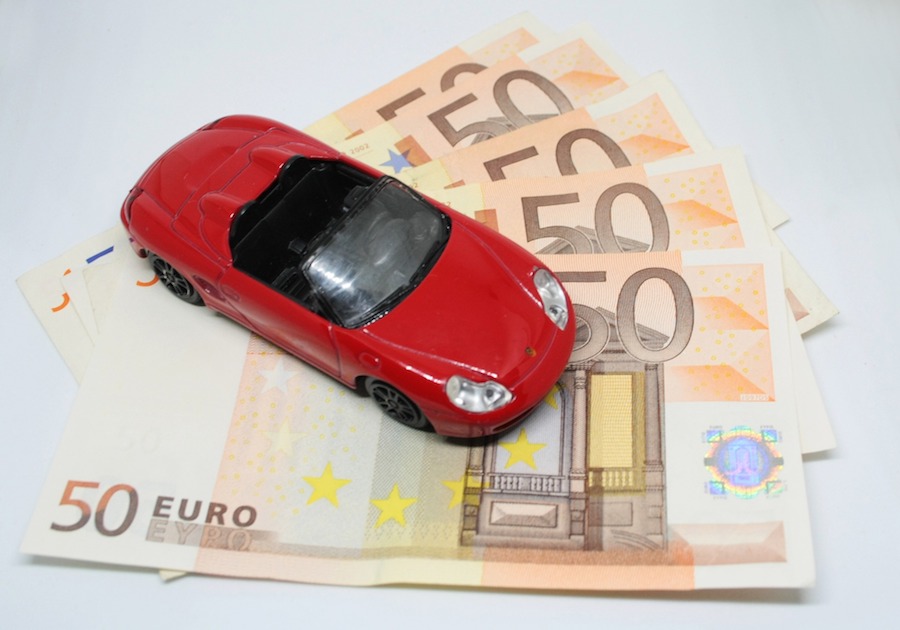PCP, or Personal Contract Plan, has become a serious driving force of car sales in Ireland in the past five years. It's a form of finance that uses the expected second hand value of the car you're buying to offset the cost of borrowing. Essentially, you're taking the residual value of the car, removing it from the cost of buying new, and deciding to deal with it later.
So, how does it all work? Right, first off, the deposit. Now, you can get PCP deals with a deposit as low as ten per cent of the value of the car you're buying. There have even been some deals around with zero-rate deposits, but to be honest you should just avoid these. According to the experts, around 20 per cent of the new car's value is the right amount to be putting down as a deposit. Less, and you're going to be paying interest to finance a bigger chunk of the purchase price. More and you're not getting the right financial benefits from the deal.
With the deposit paid, you then work out your monthly repayments and this is where PCP tends to score highly. With the combination of deposit and the deferred cost of the car's depreciation, the monthly repayments on a PCP will, usually, be much lower than those for another form of finance.
What happens at the end of the deal, though, is what makes PCPs different, and indeed what can make them a sometimes tricky proposition. Come the end of the, usually, three-year period, you are left with two things - the final payment of the lump sum we knocked off at the start, and a choice. You can, if you like, hand back the car at this point and the residual value will cover the final payment, and you can walk out free of debt. You will also, of course, be free of car at this point.
What most people do is use the residual value of the car to pay off the final amount, and any remaining equity in the value of the car to act as a deposit for a new one, starting the PCP cycle all over again. You can also, of course, pay the final amount as a single payment, and keep the car.
This is where PCP extracts its pound of flesh, really. As ever, there's no such thing as a free lunch, and the whole idea of a PCP is to keep you coming back for another new car on a reasonably regular cycle. You get the lower monthly repayments, but the car maker and dealer get a regular, loyal customer.
It's also worth noting that, on a PCP, you never actually own the car. You're leasing it, and as such you will be subject to some, quite strict, limits on condition and mileage. You can't modify or alter the car, and any mileage in excess of the agreed limit will incur an extra cost at the point of trade-in.
There's another issue with PCP and that's on the residual value front. While second hand values of cars in Ireland have been generally high of late, the effect of Brexit on the value of Pound Sterling has seen a flood of imports into the country, which have knocked back those second hand values. While there has been, as yet, no great disaster, sliding second hand values will affect the amount of equity you will have in your car to form the basis of your next deposit.
What about good old-fashioned HP? Hire Purchase has been around for a lot longer than PCP and it's also a lot simpler. You just pay a deposit, sort out the monthly repayments (which will, it must be said, usually be higher than those of a PCP) and at the end of the agreement, you make the final payment and own the car. While HP does generally mean higher monthly repayments, there are some fringe benefits, such as the fact that some car makers and dealers currently have zero per cent HP finance offers in place, as opposed to PCP, which will usually have an interest rate of between 2.9 and 5.9 per cent.
So, HP is simpler and easier to understand, and doesn't automatically lock you into coming back for another car in three years' time. PCP is more complicated, and is essentially a tool that dealers use to tempt you back for another new car in due course, but it does make for much lower monthly repayments. Neither is automatically better than the other, so make sure you do your homework, break out the calculator and work out which one is better for you.
Click here to read the full CompleteCar.ie guide to car finance.


